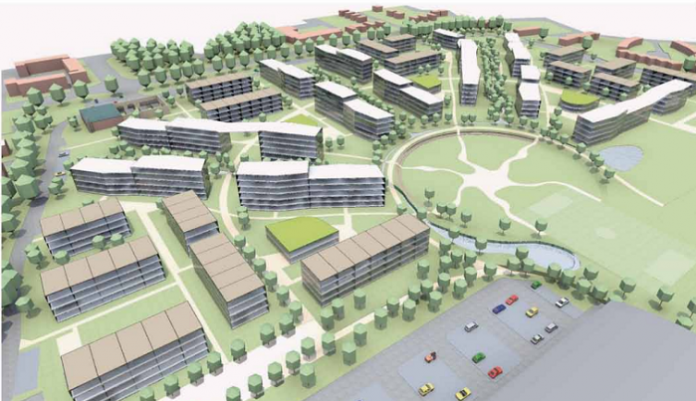The University of Hertfordshire’s 2020 Estates Vision signals the university’s development objectives for the future, including creating a campus that enhances the student experience. The university’s director of estates Andrew May explains the project and how it was financed through a combination of pioneering off balance sheet unwrapped bonds.
The 2020 Estates Vision is the university’s estate strategy. We developed the plan in 2010 and it was approved in 2011.
Background
Hertfordshire 2020 was born out of a series of changes to the higher education environment. One of these changes is the trebling of tuition fees and the advent of student as customers. While it has had a massive material impact on higher education, It’s a bit of a myth that universities have got more money from tuition fees trebling.
The reality is that the students are not writing a cheque, the government is and they are giving universities less direct funding as a result. Also, because the fees are capped they are not increasing by inflation, so in real terms our income is declining year on year.
The second change is the way universities are funded is massively different today than it was in the past. The third big difference is greater competition. Last September, the cap on student numbers was lifted and universities are now at liberty to recruit any number of students. We have got real, genuine market competition.
As a result of these three changes, students are becoming more demanding. We also live in a consumer environment, there’s less money in the system and great competition. Any business in the land that has those three macro changes, has to respond and do things differently.
The response
We wanted to invest heavily in our estate in response to those changes. But we had no money, we were in a big recession, and because of that there was a board embargo on borrowing money.
So how do you invest in your physical estate under these constraints? What we came up with was an estates strategy that set out how we were going to invest £400m in our physical estate without borrowing money. That’s what the Estates 2020 plan was.
In part one, we separated our core business from our non-core business. Core business being learning, teaching and research and non-core business being everything else, in particular, student housing. We did a deal with the private sector whereby they designed, built, financed and operated the accommodation for 50 years, taking the demand risk, construction risk and operational risk. This will create 3,000 student rooms for us.
We did this transaction off the balance sheets, so it wasn’t our borrowing. That deal stimulated investment of £170m. The university also got a capital receipt upfront on the day they signed the deal – in other words our partner wrote us a cheque for signing a 50 year contract. While we owned the land, they were leasing it to them for 50 years and we got a capital receipt because they valued it. At the end of the 50 years we get it all back for a £1, so we don’t sell our family silver. In addition to the £50m we will get £30m over time.
Together these measures represented £230m of the £400m investment. We also decided that we would operate the university like a business in a true sense without spending every pound we earned. What we did was created an efficiency and effectiveness agenda which was all about getting to the position where the university regularly created a £10m pa surplus. This gets invested back into the services.
Finally, we have a couple of non-core off-campus sites and we decided to sell them to get capital.
Progress
Three years in, we delivered about £150m worth of work. By the end of this calendar year we will have delivered £250m investment into the university’s physical estate and haven’t borrowed a penny.
These achievements have been recognised more widely. Hertfordshire won estates team of the year in 2014 and our work on the 2020 Estates Vision was highlighted in last year’s Diamond Report into efficiency in higher education.
Andrew May is director of estates at the University of Hertfordshire








